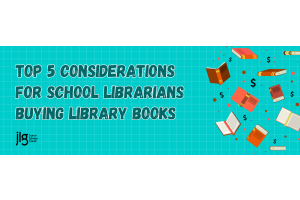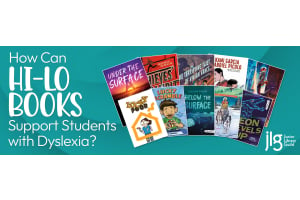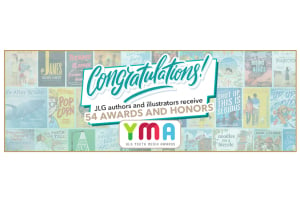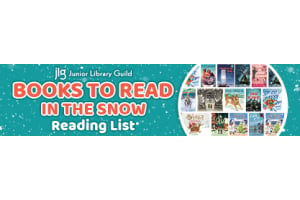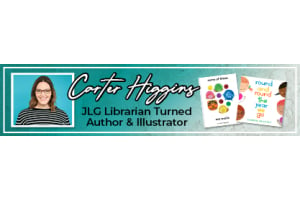Author Q & A with K. Ancrum, author of "Icarus"

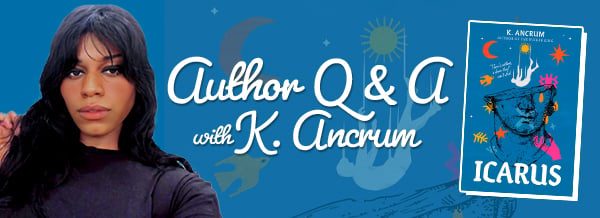
Introduction
Happy PRIDE, everyone! This June, we were able to chat with K. Ancrum, author of the JLG Selection Icarus, featured in our Mystery High Plus category—perfect for readers grades 9 and up.
In this author feature, you’ll learn about K.’s art background, the support she offers to her communities, and why she writes for her YA queer audience:
“At the end of the day, people who write for children are de factor educators: we have significantly more in common with librarians and teachers,” said K. “When we are writing these books for children—an incredibly vulnerable part of our community—there should be an expectation that it is written with love.”
Sit back, relax, and remember K. is NOT giving us any ideas on how to destroy priceless works of art (for that, you’ll actually have to read Icarus).
Q: Kayla, tell us about yourself! We’d love to hear about your writing background, passion for movies, special interests in Greek mythology, etc.
A: I’ve only written novels my whole life, and I’ve been doing that since I was 12 years old. They were terrible and I’d force my long-suffering middle school friends to read them. But because of this, I’ve been writing for long enough that I’ve had years to craft deliberate writing choices when it comes to my design, format, and style. I’ve had time to understand the way I want to deliver my art as a message.
When I was young, I was also very involved in other arts, but when I first picked up A Wrinkle in Time in my seventh-grade classroom library, I felt for the very first time that I was reading as a writer as opposed to as a reader. I remember thinking that Madeleine L'Engle had important things to say about friends, family, love—such important topics to share with children and that she was communicating her ideas more effectively than I could have done through my painting, or dancing, or sculpting. So, I decided that writing was the best way for me to truly be understood.
I’ve always been very into movies because I understand storytelling as something that is inherent to the human condition, and we process it through many different types of media. I view all different kinds of media as equal, so I learn things about my story writing and how to communicate my ideas through TV, movies, games, music, etc. I have a filmmaker’s perspective when it comes to the design of the worlds within my books, how the text looks on the page, and how it surrounds the characters.
Q: Your Gold Standard Selection Icarus explores a large spectrum of themes like connection, community, love, power, abuse, the questioning of what is morally “right”, and more. What inspired you to write this multifarious queer YA romance?
A: I spend a lot of time thinking about what my audience needs. I think about books as products—and of myself as a product designer, so I try to make sure that my book appeals to the group that I’m marketing towards and serves the needs of these communities.
At the end of the day, people who write for children are de factor educators: we have significantly more in common with librarians and teachers. When we are writing these books for children—an incredibly vulnerable part of our community—there should be an expectation that it is written with love.
At its core, I think the largest umbrella topic Icarus covers is a multigenerational relationship with the concept of making positive choices; despite the environment the characters are in. My characters don’t ever hate their environment but they’re looking at the people who raised them, looking at their circumstances and thinking, “okay, I understand what is happening, but I want more for myself, I think I can do better, and I can learn from this experience.”
Of course, there are other lessons in Icarus, like the discussion of love languages, the expression of Helios’s sexuality, abuse dynamics, drug addiction and recovery, and care as a form of community. It’s important to me that these topics are handled with grace and consideration for how they are introduced to the audience. It’s a product, but a product designed with deliberation and love.
Q: Immediately, you plunge readers deep into the world of art (and thievery). Where did you learn about the unique techniques to practice, preserve, and replicate art? Do you create painting, sketches, prints, etc.?
A: I've been in the world of art creation for an extraordinarily long time. My mom couldn’t afford a babysitter, so she would put me in thousands of free programs as a kid just so I’d have some place to be. I’ve tried glass cutting, mural making, sculpture, woodworking, painting, wheel throwing, fiber arts, charcoal—all of it. As an adult, I tend to split my artistic interest between writing and costume design. I go to the Renaissance Fair every year and I design elaborate stage worthy pieces inspired by Renaissance art. Fashion is another art form for me, one that I’ve kept while I’ve left other forms of art practice behind.
Anyway, as an author, I do a lot of research. Regarding Icarus and art restoration: I have a friend who works at the Art Institute. It was very exciting to be able to ask them questions about certain topics, though she often had to be tight-lipped about some aspects of restoration. We can’t be giving away trade secrets!
In Icarus, I spent a considerable amount of effort to showcase excellence when it came to art restoration and storage practices. Meanwhile the art works that my characters create for the purpose of forgery are passable at best. It is a way of showcasing where the values of the characters lie: The work he creates for museums is very well done and the work he creates for revenge is only good enough to trick the specific person he’s trying to fool.
Above all, there’s always a part of me that wants to make sure that--while I tend to write books that have this feeling of fantasy to them, or magic--I put a lot of work into making sure that my details are as accurate as humanly possible, even if it detracts from creating a more interesting fantasy. This is something I did in my first book, The Wicker King. Readers often ask me why I do this, but I strongly feel that it’s worth it to write for accuracy, especially concerning medical situations. If people have a similar circumstance happening to them and are undiagnosed, and they read my book, I want them to be able to use what’s in it to recognize their situation, because it might be able to help or save them.
Q: Do you have a favorite artist or are there certain artistic works that inspire you?
A: I’m really into Man Ray the photographer. I like surrealist work, minimalism, visual pieces that are about impact and contrast and intensity. I also love Joseph Cornell's shadowboxes (there are actually a few on display at the Art Institute—I spend a lot of time there). I consider the way my books are written to be a narrative shadowbox. In the past, my readers have complained that they have a hard time self-inserting themselves into my books, they don’t feel like they can make themselves the main character and experience the plot. But I’ve never intended for my work to be read that way. There is a specific type of environment that I purposefully create within my work to make it feel like readers are looking into a world that they can’t touch or feel like they’re a part of. That way when things start going wrong, there’s a heightened sense of anxiety, and it’s there on purpose. It’s not an oversight.
I’m also obsessed with John Waters, a director that creates radical, absurdist queer film, you know? Very focused on social commentary through vulgarity and garishness and ugliness as social impact. A very, very interesting director. These three artists and their strengths are almost embarrassingly visible in all my art: Dada surrealism, Minimalism, queer, vulgarity, and shadowboxes.
Q: Throughout the story, Icarus explores the different types of relationships that he shares with his acquaintances, friends, love interests, and family; he ultimately learns that they all offer him support in different ways. Does one support system outweigh the others?
A: Icarus is a character removed from people and his community, so he experiences community through a series of gestures. To Icarus, his most important support system is his friends. Due to the neglectful nature of his family of two, Icarus is severely touch starved and doesn’t have a firm understanding of how to express his feelings of love and friendship physically. He learns those behaviors from his friends. Because the story starts and ends during his senior year of high school, he must figure this out very quickly so he can apply what he’s learned to his budding relationship with Helios. The way the teenagers are in this book is very similar to the experiences that I had in high school, surrounded by others who were casually and physically close with one another. My peers would hug and hold hands—things that are so common, but for Icarus who has never experienced that even in his own home, it is a breathtaking experience.
These people have had a very deep impression on his life, even though it seems like they are doing incredibly regular and normal gestures. His friends help create him, and that’s a major theme in a lot of my work. I always want to showcase teenagers behaving in a way that elevates the quantity and the quality of care that other kids give each other, even under circumstances of duress.
Q: Are there elements of Icarus that you drew from your own experiences?
A: Helios being intersex was very personal for me. As an intersex person, I have spent a lot of my career being contacted by intersex organizations and asked if I have any books with intersex characters and I’m very happy to finally be able to say yes. Since Icarus is my first book that contains an intersex character, I had a very specific vision for it. I wanted to present this character exclusively through the eyes of somebody who loves him. I wanted the first experience that a child has reading a book with an intersex person to be in this gorgeous scene where they see divinity, beauty, and complexity of design.
Q: While June is recognized as PRIDE month, it is imperative that representative literature is available to all reading communities—every day of the year. With book bans attacking LGBTQ+ stories, authors, and anyone wanting to put titles on their shelves, what can we do to empower readers to keep sharing stories like Icarus, stories that offer love, care, and gentleness?
A: If young readers want it, if young readers need it, they will find it. Children want books like this—they’ll seek them out—and if they don’t have access to this literature, they turn to fanfiction and read that instead. The desire exists, it’s the availability that is being threatened.
People who are creating book bans are organized. People who don’t support book bans often trivialize the rigidity of the organization that goes into creating these circumstances. It’s a very small number of people who are behind these book bans, and the reason that they’re able to keep getting away with these attacks is because the average citizen doesn’t show up to community meetings and local government elections.
We need to physically go to our libraries when these discussions about content are taking place because the people who hate us never fail to show up.
If you’re somebody who is affected as a community member, you are not powerless. Speaking out against these things or sharing awareness helps, but awareness is not the end all be all of protest. Sometimes, it’s doing boring work like writing a letter or physically showing up to vote in elections (maybe bring your friends along as well).
Librarians are trying their best to make sure book bans do not happen, but they are also very busy with other duties. Librarians rely on the support of their communities to help protect our right to read. Children will always be interested (they were interested when we didn’t have these books being published.) Librarians, teachers, trusted community members will always keep trying to purchase these books. But the availability of this content requires active works and protest to make sure that these policies don’t destroy their communities.
Q: Icarus is filled with many heartfelt and meaningful messages, but ultimately, what do you hope readers take away from this story?
A: The circumstances that you're born into have nothing to do with your destiny; you can make your own choices. When we are born into something, it feels like we are the seeds of a tree that we will eventually grow in to, regardless of what we do (like if you were born an apple tree, you’ll always be an apple tree).
That’s not the reality of life. So many people have walked away from what could have been their life and found the strength to build a life that better suits them.
Unless children have the insight to know that this is possible, it seems utterly incomprehensible as an option.
It’s very important that children at this stage understand how to handle different situations because the things you do between the ages of 17 and 26 can impact so much. Understanding that you have this power inside of you--that you have choices and can build a place that feels like heaven on earth for yourself--is a very important lesson that I would like to share with my audience from this book in particular.
Q: What projects are you currently working on? Can we expect to read any new YA stories soon?
A: I do! I have another book coming out called The Corruption of Hollis Brown. This book is about a kid who gets possessed and then falls in love with the ghost possessing him. A true gothic horror romance. I haven’t been given a release date, since it’s still in copyediting stages, but it will be coming out sometime soon!
Q: How can librarians and readers connect with you?
A: Feel free to send me an email which can be found on my website. I’m also on Twitter and Tumblr (if anyone still uses that.) I also do school visits and both large and small event visits. I’m also comfortable meeting with individual educators if somebody has a few questions they’d like to discuss.
Add Icarus to your JLG Book Box, featured in our Mystery High Plus category.




